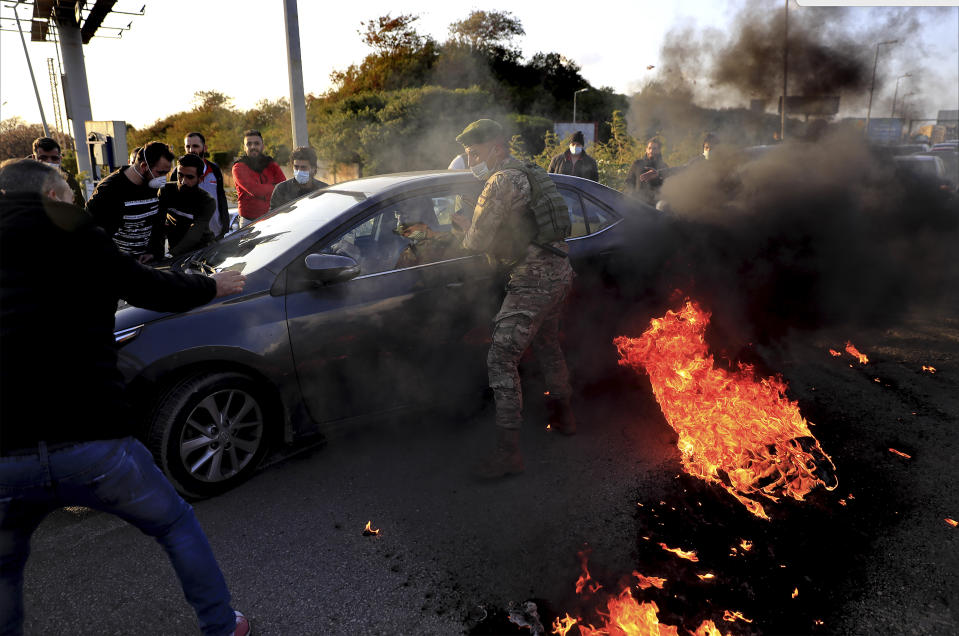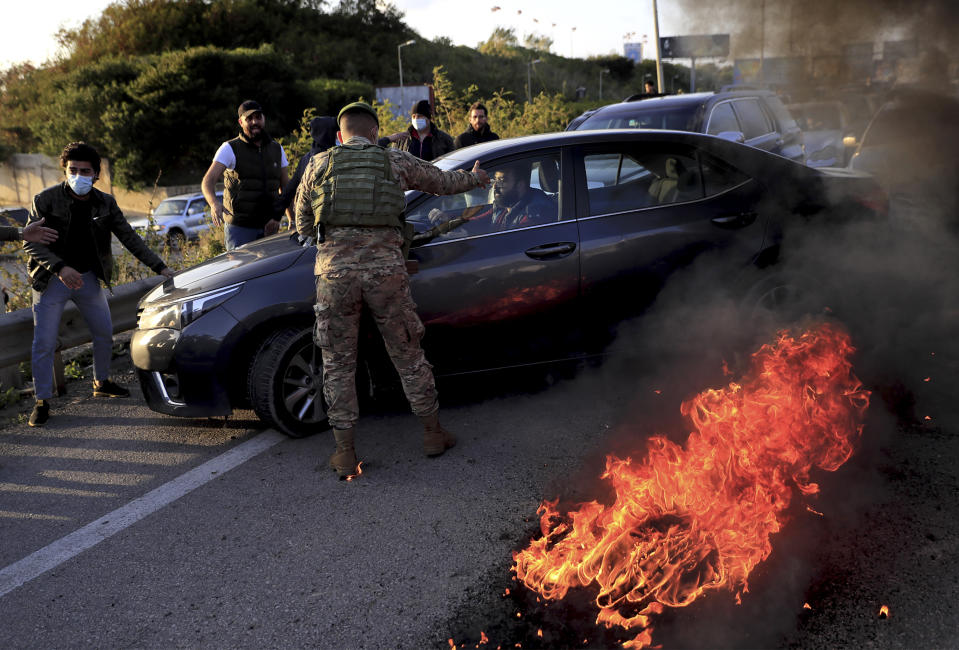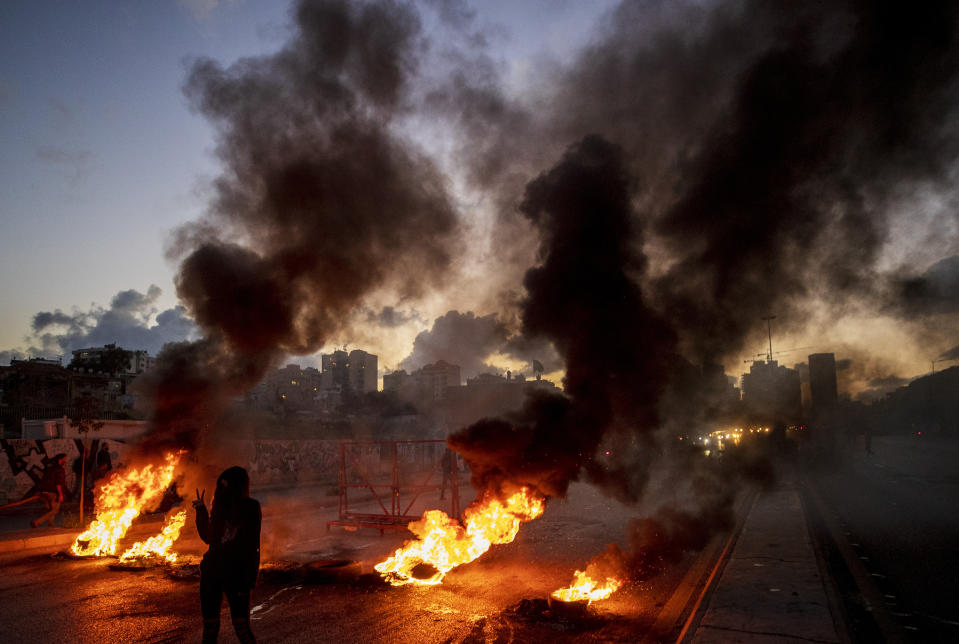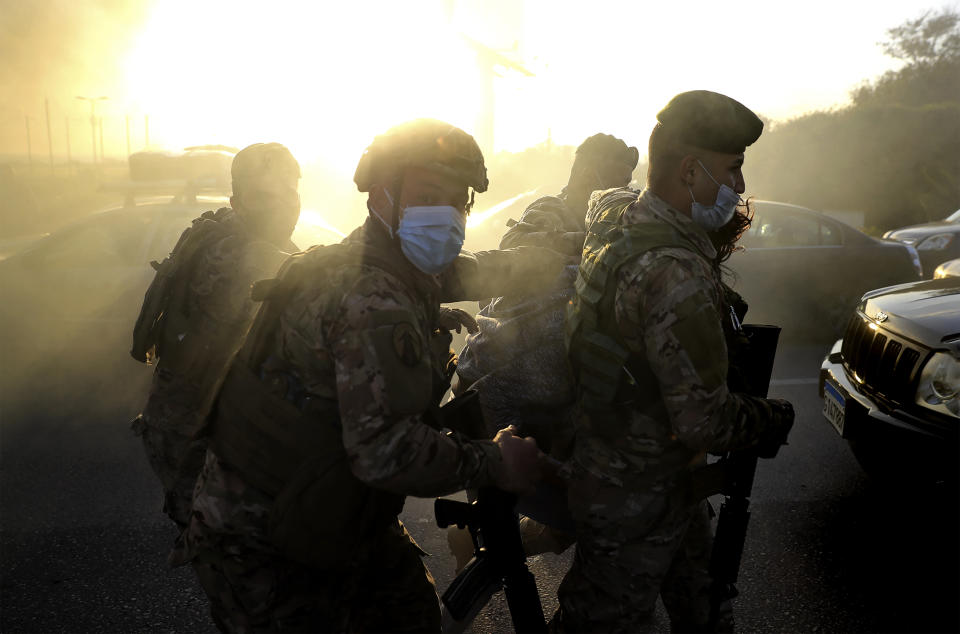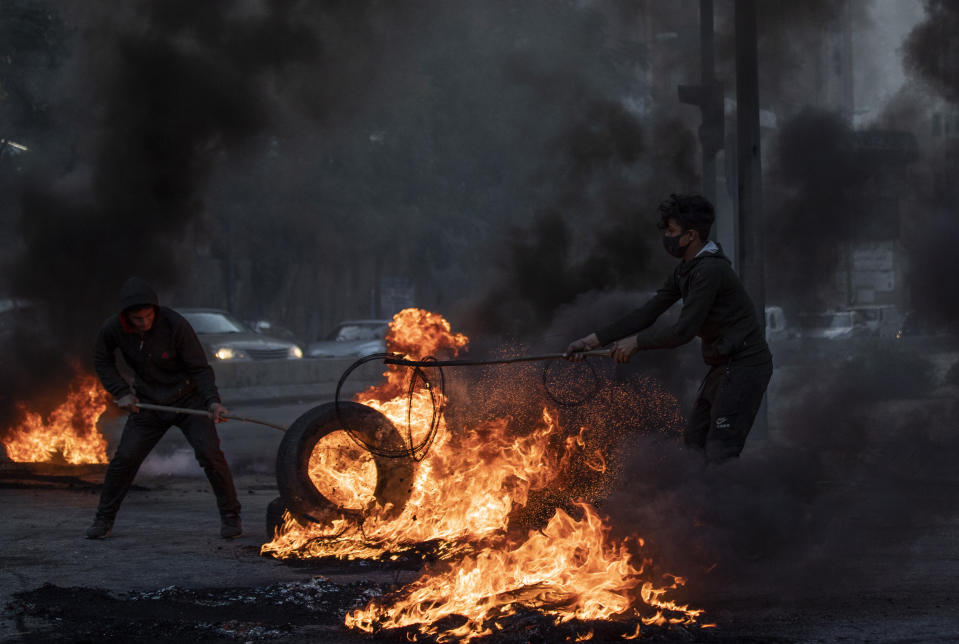Lebanon's president wants investigation into currency crash
BEIRUT (AP) — Lebanon’s president Wednesday ordered the central bank governor to open an investigation into currency speculation, after the Lebanese pound plunged to record lows on the black market this week.
The request by President Michel Aoun came after the country’s banks were required to raise their capital holdings by Feb. 28, and local media reported that some had to scramble to get hard currency from the black market, sending demand for it — and its prices — surging.
While officially the U.S. dollar costs only 1,520 Lebanese pounds, the black market price was around 9,900 pounds on Wednesday — a day after briefly hitting a record high of 10,000. Just a few months earlier, dollars could be bought at a rate of some 7,000 pound per dollar. The currency drop led to protests across the country.
In a statement released by his office after meeting central bank governor Riad Salameh, Aoun said if it turns out that the crash was because of speculators, they should face justice. Enraged protesters, angry over the higher costs of dollar denominated goods, have blocked roads and highways with burning tires across the country.
Lebanon’s banking association denied it was responsible for the situation, blaming instead a lingering political impasse, pileups of unpaid state contracts and household dollar hoarding.
Bickering between Lebanon's political rivals has left the country in a stalemate for months, only worsening the economic disaster sparked by a debt crisis and sovereign default last year. Disagreements between Aoun and Prime Minister-designate Saad Hariri have delayed the formation of the government for more than four months.
Lebanon has been hit by one crisis after another, with widespread protests against the country’s corrupt political class breaking out in October 2019. That has been compounded by the coronavirus pandemic and a massive blast in Beirut’s port last August that decimated the facility.
The country desperately needs foreign currency, but international donors want major anti-corruption reforms first, lest the funds disappear into a notorious state sector sinkhole that has brought the nation to the brink of bankruptcy.
The crisis has driven nearly half the population of the small country of 6 million into poverty. Over 1 million refugees from Syria live in Lebanon.

 Yahoo Finance
Yahoo Finance 